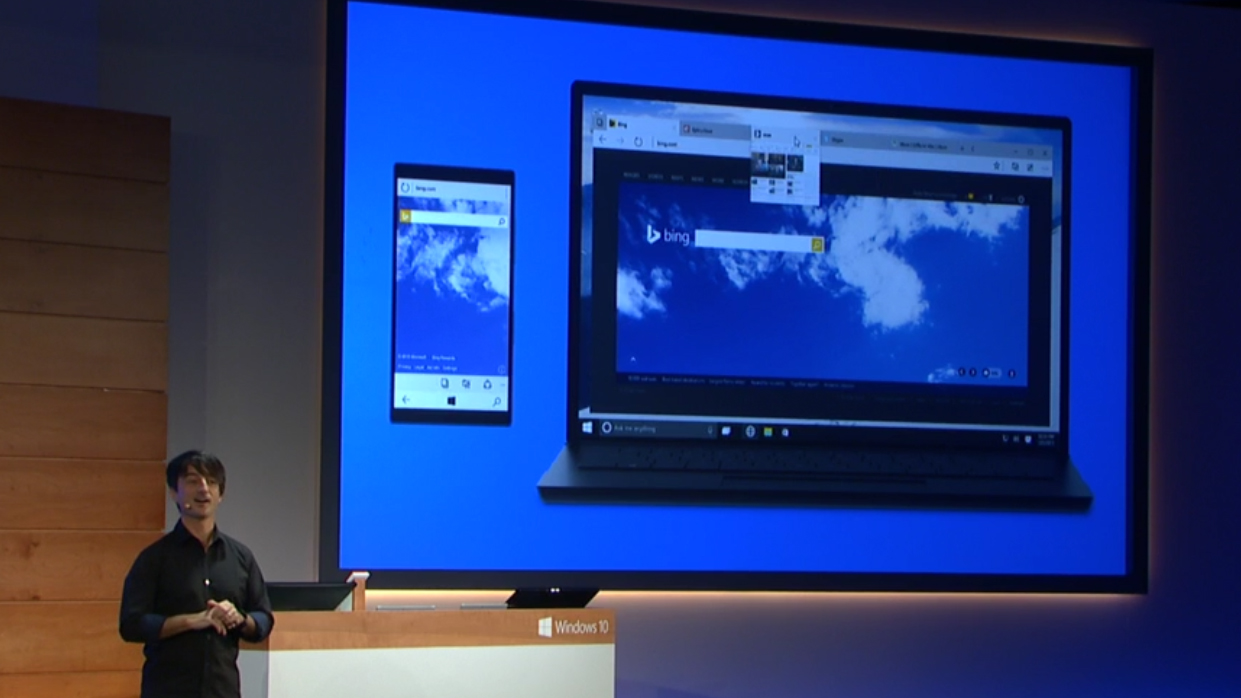Why Windows 10 is excellent news for businesses
It's still very early days for Windows 10, but we already know about many benefits

Although this sounds like a sound plan (end users being able to use the same apps in the same way on all their devices), it's unlikely to gain massive traction simply because of the limited number of Windows Phones and tablets out there. This may change, but developers haven't got behind Windows apps (now known as Universal apps) so why will they now?
Speaking at a recent Panasonic Toughbook launch event, Goran Mataic, a senior channel executive at Microsoft, talked through the corporation's hopes for Windows 10. "We're working on quite bold steps in innovation to be integrated with this new platform. These innovations fall into four major areas – the platform, user experience, security and management."
"When we look at the development arc of the ecosystem many of the developments on many different platforms are converging."
Through MDM, Microsoft is working towards consistent mobile device management for IT departments across the common platform of Windows 10. Through this, it hopes Windows Phone 10 device will be chosen by companies and corporates for the ease of managing them alongside desktop platforms. In reality, market forces will probably decide otherwise. And that's before you consider the heavy lifting Google has been doing around Android for Work.
One of the big questions around Windows 10 for business is how much it will cost. Windows 10 will be a free upgrade for consumers, but there is as yet no mention of how much business or enterprise versions will slot in to this set up. Microsoft has made much of Windows 10 being SaaS, just like Office 365 and therefore easier for IT departments to manage and deploy than earlier versions of the Windows OS.
Microsoft has announced the roll out Windows 10 to enterprise users: through Windows Software Assurance program. While this means things installation methods will be flexible and updates restricted to security patches and so on (rather than new feature updates that might break stuff), it also means Windows 10 will cost money at this level.
For smaller organisations, Windows 10's pricing structure is very unclear. Providing IT departments are happy with Windows 10 on new devices from the off (and that's a big if, since many of them haven't long been wedded to Windows 7) they will also be able to perform in-place upgrades. Licenses will be able to be more easily transferred and software more easily deployed thanks to an App Store for Business with volume purchasing.
Are you a pro? Subscribe to our newsletter
Sign up to the TechRadar Pro newsletter to get all the top news, opinion, features and guidance your business needs to succeed!
Because of this, "Windows 10 will mark the end of wipe-and-reload" according to Microsoft. We certainly hope so, but is it realistic? Often the quirks of many corporate PCs added to the installation of bespoke desktop software and drivers mean that wiping a device and starting from scratch is often the only way to ensure a good experience for the next user of that device.
Dan (Twitter, Google+) is TechRadar's Former Deputy Editor and is now in charge at our sister site T3.com. Covering all things computing, internet and mobile he's a seasoned regular at major tech shows such as CES, IFA and Mobile World Congress. Dan has also been a tech expert for many outlets including BBC Radio 4, 5Live and the World Service, The Sun and ITV News.